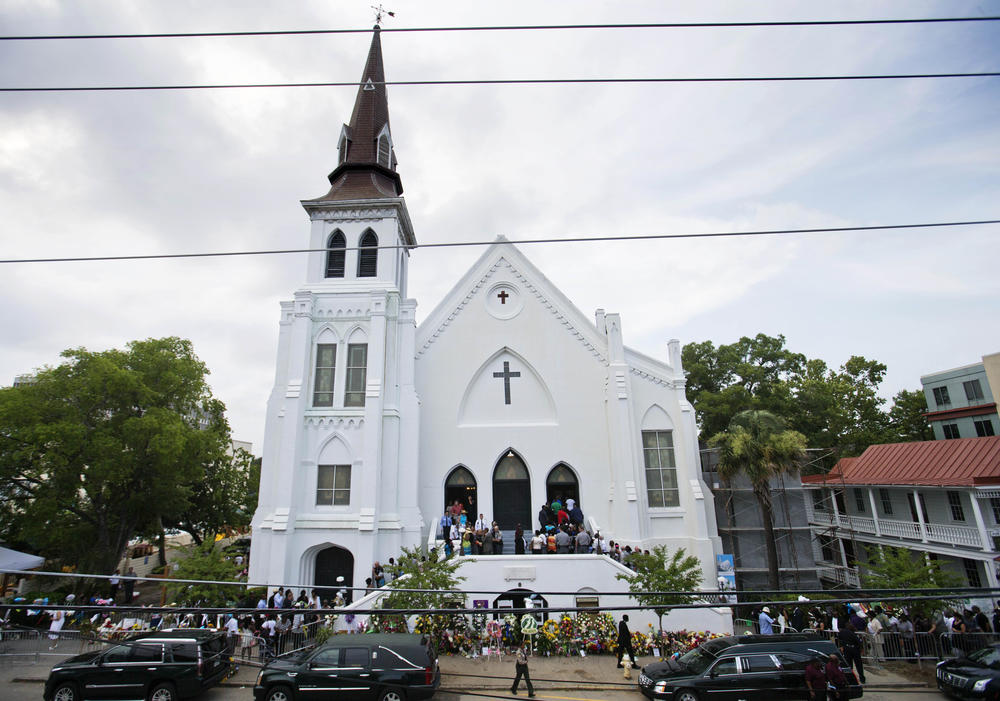Section Branding
Header Content
'Grace Will Lead Us Home' Details Charleston Church Survivors' Journey To Forgiveness
Primary Content
Monday marks four years since 12 members of the historically black Emanuel African Methodist Episcopal Church in Charleston, South Carolina, welcomed a young white man to join their bible study group. When their eyes shut for a closing prayer, he pulled out a Glock pistol and fired 77 rounds, killing nine people.
On Second Thought host Virginia Prescott speaks with Jennifer Berry Hawes.
In the days and weeks that followed, the nation learned about the lives of the people killed in the racially motivated massacre. Families of some victims told the shooter they forgave him. Amid an outpouring of support for survivors, South Carolina legislators debated and voted to remove the Confederate flag from the South Carolina State House.
When the national media moved on, Pulitzer Prize-winning journalist Jennifer Berry Hawes and her colleagues continued to cover the longer toll of trauma that would forever change the Mother Emanuel community. Hawes details the event and its disastrous aftermath in Grace Will Lead Us Home: The Charleston Church Massacre and the Hard, Inspiring Journey to Forgiveness.
She joined On Second Thought from Charleston ahead of her Friday event at the Jimmy Carter Presidential Library in Atlanta.
Get in touch with us.
Twitter: @OSTTalk
Facebook: OnSecondThought
Email: OnSecondThought@gpb.org
Phone: 404-500-9457


